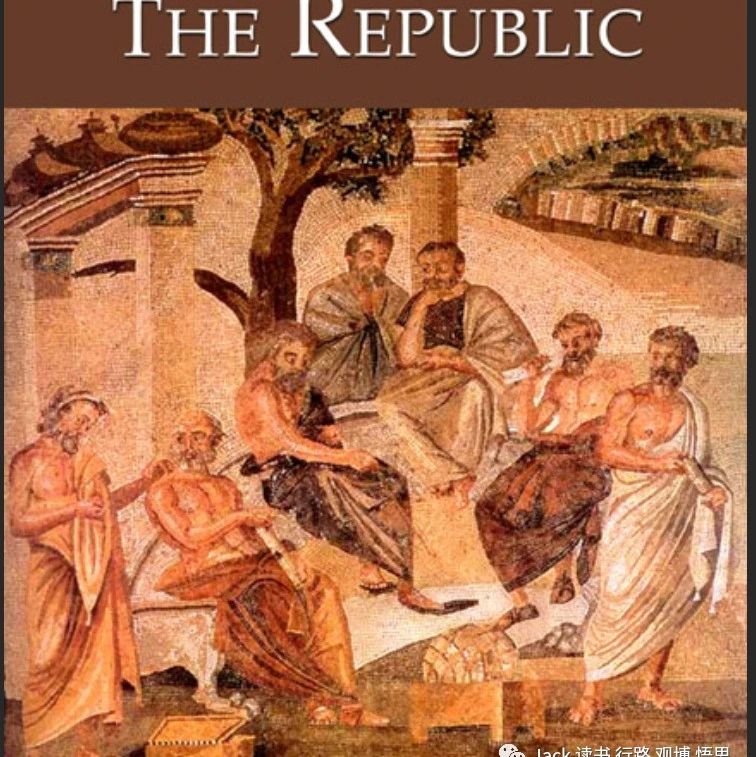The Republic 5 The Ideal Class - Based Society 《理想国》5 - 完美的阶级社会
From the past to the present, many civilizations adopted a rigid class-based social system to ensure stability and development. Although in recent years this kind of hierarchical and unmalleable system has been thoroughly criticized, there is still value in trying to understand it. How can we do so? A good way to do so is to create a hypothetical city-state wherein one can test the structure.
The upper class of the city-state that I would lay out would be the rulers and the Department of Ultimate Supervision. The rulers would be a group of oligarchs or elites from the pool of the common elected by the populace. They would rule together and restrict each other. The Department of Ultimate Supervision would be an independent organization made up of knowledgeable elites that know the laws and are not governed by political trends. They would work together to solve conflicts that might slow down the rulers’ efficiency and sanction any oligarch who is breaking the law.
The second class of my city-state would be made up of scientists. The scientists would be further divided into two groups. The first group would be the Human Future Organization. This Organization is a think-tank, and responsible for deciding the future scientific path the state will take. It would make key decisions in fields such as space exploration and AI. This Organization is important for setting broad goals and directions for the future. It is intricately linked with the second group of scientists, the group that is actually doing the research and development.
The third class of my state would be the teachers and economists. The teachers are in the third class because they are crucial for this system to function. One of the thorniest issues of a democracy is a worthless crowd, and the teachers in my state would prevent people from electing wrong candidates by teaching them critical thinking and ways to participate in politics. The economists would additionally ensure that beneficial economic policies are implemented and that markets stay relatively stable.
There are three other classes in my city-state. The fourth is made up of government workers, lawyers, and doctors. The fifth would be soldiers that guard the borders and maintain internal stability. The sixth and final class are the common populace. Overall, I firmly believe that, by emphasizing the importance of the oligarchs, the Ultimate Supervisors, the scientists, and the teachers, my state would function properly, and more or less stay on the right track. In my opinion, in modern times we always stress the importance of a free-flowing society. To do so is unquestionably necessary. However, there are still elements of an unmalleable system that we can take from to enhance the governing efficiency and prosperity of a malleable system. We need to take that in mind when we advance forward into the future.
从过去到现在,许多文明都采用僵化的阶级社会制度来确保稳定和发展。尽管近年来,这种等级森严的制度受到了彻底的批判,但试图理解它仍然对我们有价值。我们怎么才能理解阶级社会?一个好的方法是建立一个假想的城邦,在那里我们可以自由地、全方面地检验这种社会结构。
我所布置的城邦的上层阶级将是统治者和“终极监督部门”。统治者将是一群寡头或精英,他们来自于由民众选出的普通人。他们将共同统治并相互制约。“终极监管部”将是一个独立的组织,由了解法律的精英组成,不受政治趋势的制约。他们将共同解决可能拖累统治者效率的冲突,并制裁任何违反法律的寡头。
我的城邦的第二个阶层将由科学家组成。科学家们将被进一步分为两组。第一组将是“人类未来组织”。这个组织是一个智囊团,负责决定国家未来要走的科学道路。它将在太空探索和人工智能等领域做出关键决定。这个组织的重要性在于它的作用,即为未来设定广泛的目标和方向。它与第二类科学家,即实际进行具体领域研究和开发的群体有着指引方向的联系。
我的城邦的第三阶级将是教师和经济学家。教师属于第三类,因为他们对这个系统的运作至关重要。民主制度中最棘手的问题之一是创造一批乌合之众,但是城邦的教师将通过教他们批判性思维和参与政治的方法来防止人们选举错误的候选人。经济学家们将另外确保有益的经济政策得到实施,并确保市场保持相对稳定。
在我的城邦中还有三个阶层。第四个是由政府工作人员、律师和医生组成的。第五个是士兵,他们守卫边界,维持内部稳定。第六个也是最后一个阶层是普通民众。总的来说,我坚信,通过强调寡头、终极监督部门、科学家和教师的重要性,我的国家将正常运转,或多或少地保持在正确的轨道上。在我看来,在现代,我们总是强调一个自由流动的社会的重要性。倡导这样的流动性社会无疑是重要的。然而,我们仍然可以从一个僵硬的阶级系统中汲取一些元素,以提高我们自由流动社会系统的治理效率和繁荣程度。当我们向未来推进时,我们需要考虑到这一点。
- 本文标签: 原创
- 本文链接: http://www.jack-utopia.cn//article/441
- 版权声明: 本文由Jack原创发布,转载请遵循《署名-非商业性使用-相同方式共享 4.0 国际 (CC BY-NC-SA 4.0)》许可协议授权










